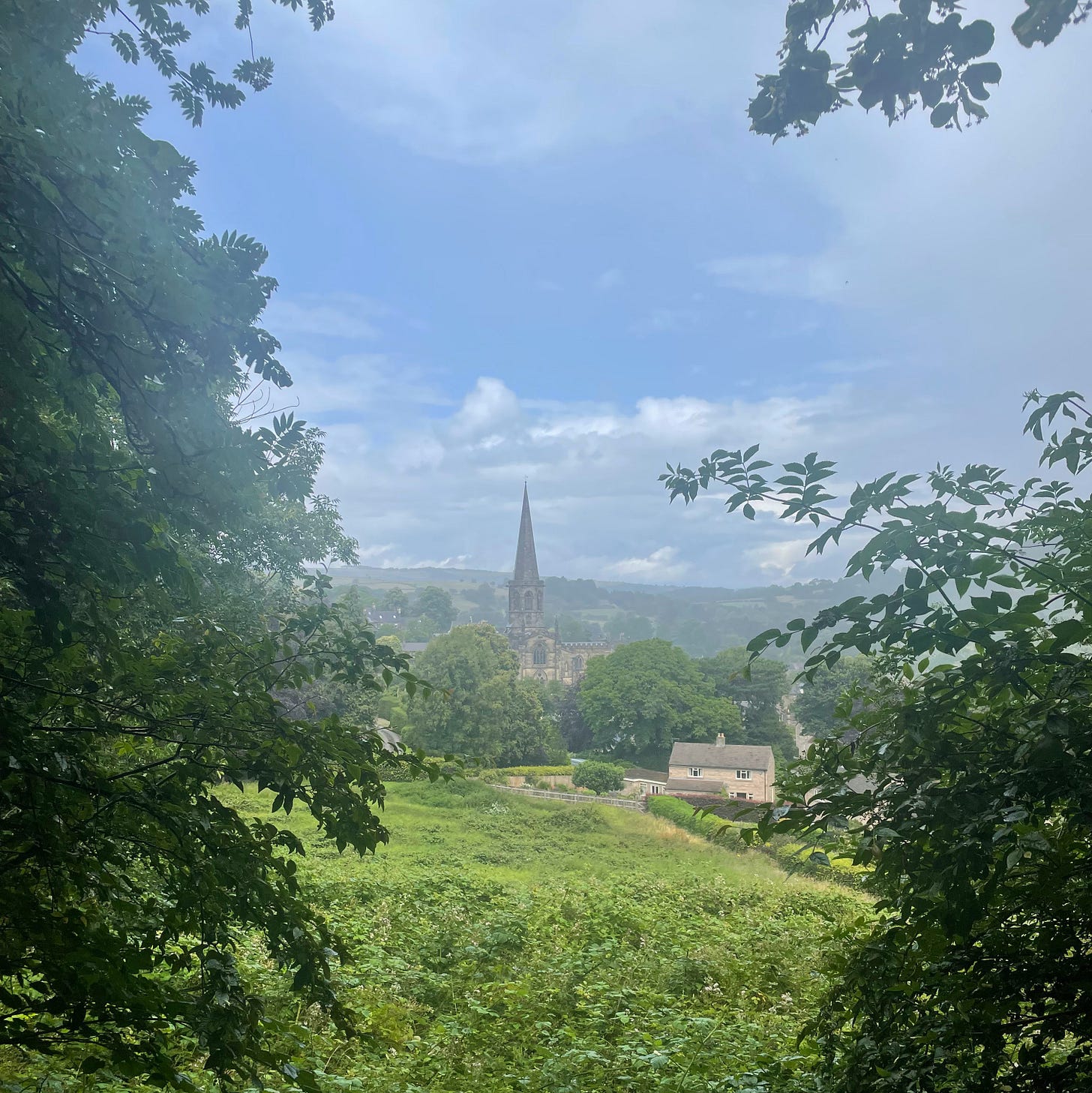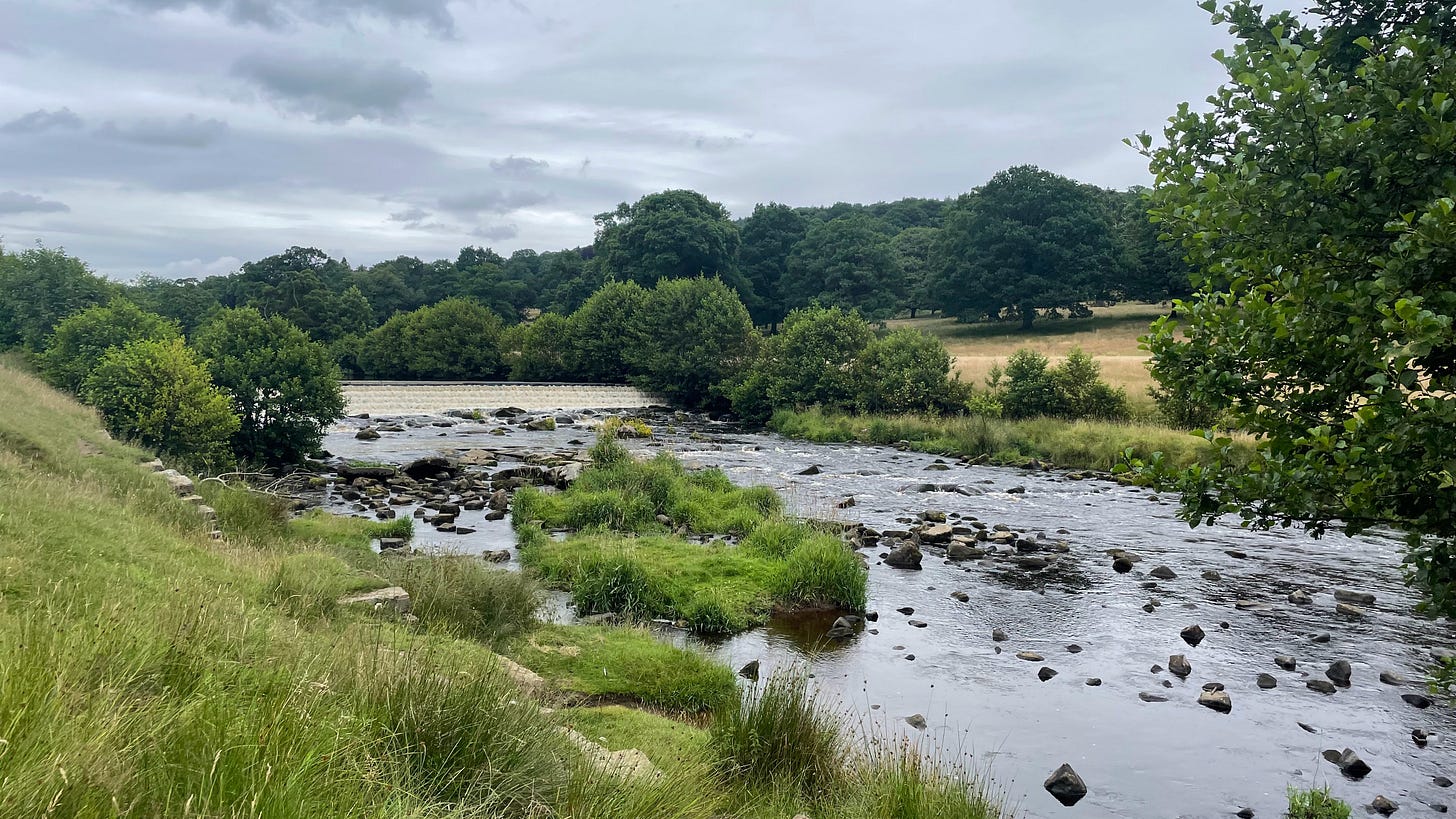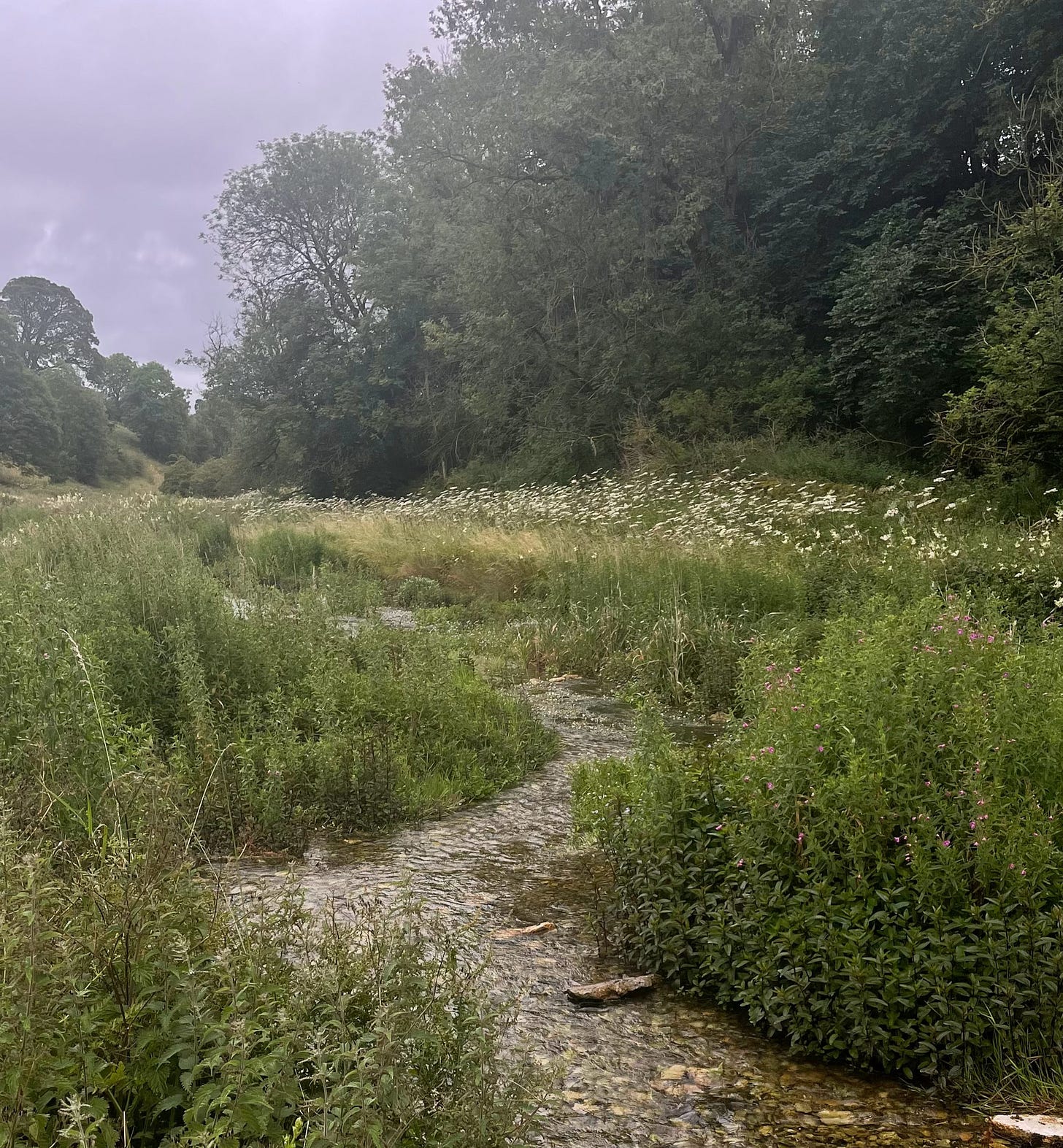Why I love rain.
An appropriate amount of it, at least.
This week I’ve been in the Peak District, a particularly stunning part of the UK known for its rolling hills and stone houses. The days have been simple: wake up; eat breakfast; walk; eat lunch; walk; read; go to sleep. I’ve also managed to sprinkle some visits to second-hand bookshops and an icy wild swim in there too.
The wildlife has been splendid. Gardens are rich with wildflowers, humming with butterflies and bees. Day moths spring up with every step I take through a field, and I’ve ticked two new birds off my list: the bullfinch (with a brilliant orange breast) and the lesser spotted woodpecker (with only 2,000 breeding pairs estimated left in the UK).
For most of it, it rained. I got absolutely soaked. But I wouldn’t change that for the world.
I’ve tried to stay away from my phone and the news as much as I can, but it hasn’t been lost on me that my ramblings through the cool low-hanging clouds of Derbyshire have been at the same time the climate crisis has closed the vice on Asia, Europe and the US with punishingly brutal heatwaves.
For ever since I can remember, people in the UK have complained about the weather. Rain in England is a cultural centrepiece. Locally it has a reputation for having short, wet summers and grey and dreary winters, which is why hordes of people take to southern Europe all throughout the year.
I’ve always hated this. To begin with, complaining about the weather is an immensely dull conversation. Complaining that it’s cold in the winter, complaining when it’s raining, complaining that it’s grey outside, is about as meaningful as pointing out that up is up and down is down. It’s boring.
Rain is beautiful. Rain is our planet’s lifecycle in motion - feeding rivers, filling up lakes, keeping countless ecosystems alive and thriving. Without rain, our planet would barely support any life, let alone the millions of species in our rivers and uplands and lowlands and forests and meadows and deserts and savannahs.
But in actuality, southern England is not an inherently wet place. London is the 35th wettest city in Europe. Both Rome and Paris get far more rain than London, which has dry spells on a par with parts of the Middle-East and North Africa. And the rain we do get is responsible for making Britain Britain - our lush green woods and fields would be nothing without rain.
Today of course, all that is changing. As we continue to pump greenhouse gases into the atmosphere our rainfall patterns and temperatures are shifting fast. 2022 was host to the hottest day ever recorded in the UK, with temperatures over a massive 40°C. Drought emptied our reservoirs. This year we had the warmest ever June, with prolonged hot days and warm nights, and temperature records are being smashed to pieces all over the world. I can only imagine what people experiencing 50-degree heat in the US and China would give for a bit of Derbyshire rain to bring even a moment’s relief.
The climate crisis manifests itself through water - either too much or too little. As well as droughts, warm air retains moisture, so heatwaves often end with torrential downpours. The sun has baked the soil rock hard so there’s nowhere for it to drain, resulting in the flooding we’ve seen in parts of Spain and the US and India and plenty of other places this year. This is also exacerbated by the concrete in our towns and cities, as the floodwaters quickly overwhelm infrastructure not designed for these kinds of weather patterns.
I could go on and on about how we’ve changed our rain, including how it now contains high levels of toxic man-made chemicals and microplastics thanks to unrestricted use in industries around the world, making it unsafe to drink. Compound this with the discovery that not one single river in the UK is free from pollution and freshwater species have been nearly completely wiped out and you will quickly realise how everything is linked, and these issues cannot be tackled in isolation.
The world’s ecosystems - and our towns and cities - have evolved around particular rainfall patterns. With those rainfall patterns going increasingly haywire, we need to act fast to adapt to the new normal. Society can no longer work on the presumption that our water resources are healthy and infinitely replenishable. Authorities must introduce water-saving legislation for businesses and restrictions on chemical use. We ned to protect and restore our natural ecosystems, using trees and wetlands to reduce flooding.
Until we get to grips with this, our relationship with rain will become increasingly uneasy. But for now, I stand in a stunning valley, a thin river babbling away beside me. A soft ‘plop’ signals a nearby water vole swimming away. A nuthatch flits between the trees, and a grey curtain of rain sweeps over me, covering everything in glorious, life-creating water.
I’m absolutely soaked. I wouldn’t change it for the world.





